Results
-
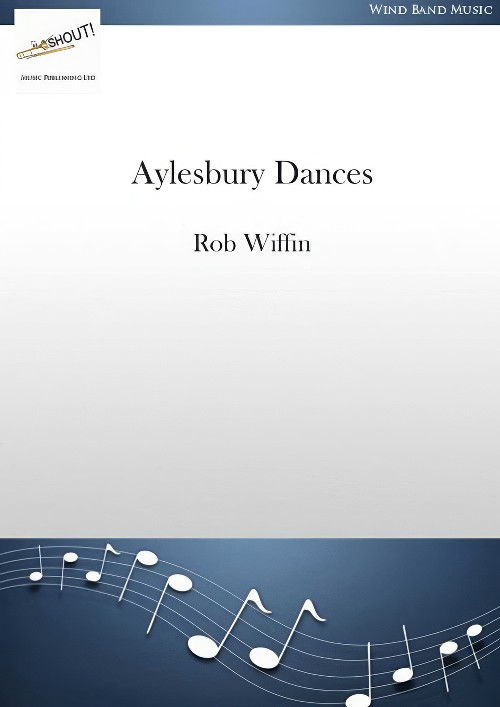 £69.95
£69.95Aylesbury Dances (Concert Band - Score and Parts) - Wiffin, Rob
The suite Aylesbury Dances was commissioned by the Aylesbury Concert Band to mark the occasion of their 25th Anniversary in 2019. Its three movements depict different aspects of Aylesbury: I. Pavane: The Town - Having read something of the town's history and its architecture I decided I wanted to write something ceremonial with the feel of music from Tudor times. Aylesbury was given its charter and borough status in 1554 by Mary Tudor so I took that as my starting point but then added some harmony that moves forward in time. This fits with the town's motto: Semper Prorsum (Always forward) and also with the Band's evolution from Aylesbury Town Band to Aylesbury Community Concert Band to Aylesbury Concert Band. The music can be defined as a pavane, or a cortege. The sense of procession is slightly disturbed by a 'Blue Leanie' moment. The Blue Leanie is an iconic Aylesbury building, an oblique rhombic prism which stands at an angle of 17% inclination. I took a quaver out of the time signature (I know the maths don't work!) to reflect this and added some bluer harmony at that point. This opening movement gives a sense of the grandeur and heritage of Aylesbury town and a chance for my friends from the brass section to warm up! II. Siciliana: Waterside - To balance the outer two movements, the middle movement of the suite has a slow lilting 6/8 rhythm. It is in the style of a Siciliana, a dance form originating in the baroque era. It is a graceful, tender and melancholic dance, cast here in a minor key and featuring the dark voice of the cor anglais. The Siciliana was often linked with pastoral scenes and Aylesbury itself sits amid some beautiful countryside. It may, therefore, seem a bit of a stretch to call this movement 'Waterside', especially as Aylesbury is so far from the sea, but the town has a theatre of that name and that was the genesis for this particular music. There is a statue of Ronnie Barker in the grounds of the Waterside theatre as he started his career in repertory theatre in Aylesbury, so I included a fleeting reference to the theme music of the comedy programme 'Open all Hours'. III. Frolic: Ducks in a Row - It was impossible to write a piece connected with Aylesbury without considering the famous Aylesbury ducks. Duck rearing was a major industry in the town in the 19th century. The white Aylesbury Duck is a symbol of the town, appearing on its coat of arms and in the logo of the Aylesbury Concert Band! This movement is all about trying to get the little darlings in a row so they can sing their 'Duck Chorus' together but they keep on scattering, flying off or swimming away as quickly as they can manage. It's a bit like watching ducks disperse when my dog jumps into the stream after them. Eventually we get more of them in a row - even though they protest. Hidden amongst the ducks is a reference to Erica Miller, saxophonist and chairman of the band, and there's even a veiled reference to a shark in the hope of getting them out of the water. Ducks in a Row is a fun romp bringing this suite of Aylesbury Dances to a suitably celebratory conclusion.- Rob Wiffin.Duration: 9.15
Estimated dispatch 7-14 working days
-
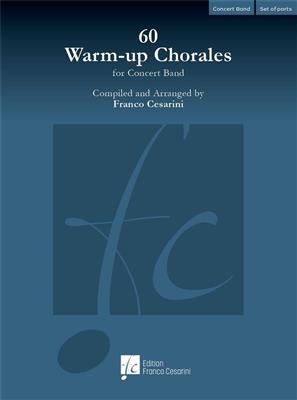 £163.00
£163.0060 Warm-up Chorales for Concert Band
During his experience as a band conductor and teacher of wind orchestra conducting at university, Franco Cesarini has dealt with the topic of warm-ups very frequently. Throughout these long years of conducting he has had the opportunity to try many existing methods, evaluating their advantages and disadvantages.After a long time, he has decided to compile a collection of chorales for warm-ups, which are organized according to the criteria that he considers most effective.While working on his60 Warm-up Chorales for Concert Band, Franco Cesarini has always borne in mind that amateur musicians play for pleasure.He feels that it is extremely important that they have satisfaction at every moment of the rehearsal and not to start the rehearsal with needless "punishing" exercises. Nobody is really motivated to start playing with scales, long notes, or tricky rhythmical exercises. There is often a distinguished absentee in band rehearsals, namely music itself!Although this publication does not foresee a specific tempo for the chorales, they should often be performed rather slowly but without dragging.Dynamics are not indicated, so that the conductor has the opportunity to draw the attention of the musicians to his gestures and to make them react according to his indications.Timpani and bell parts have been added with the aim of not leaving the percussionists completely inactive during the warm-up phase, but can also be omitted.The chorales are written in four parts (SATB) and are also playable in smaller groups. The four voices can be played in different combinations of woodwinds or brass quartets or in mixed combinations.The collection includes ten chorales for the following keys: D flat major, A flat major, E flat major, B flat major, F major and C major.With his 60 Warm-up Chorales Franco Cesarini would like to convey the message to play the chorales in a musical way, thus raising the musicians' awareness of phrasing, the right interpretation of cadences, rubato and agogic.Above all, never do anything without putting the musical aspect in the foreground. 60 Warm-up Chorales for Concert Band: A perfect collection to warm-up and improve tuning of a concert band!
Estimated dispatch 7-14 working days
-
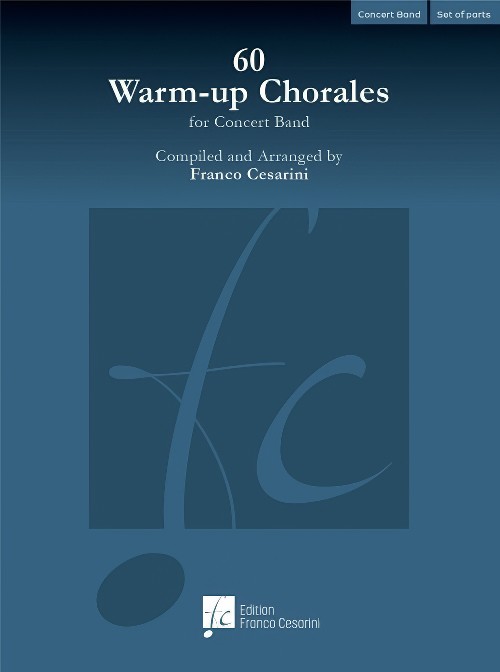 £175.00
£175.0060 Warm-Up Chorales (Concert Band - Score and Parts) - Cesarini, Franco
During his experience as a band conductor and teacher of wind orchestra conducting at university, Franco Cesarini has dealt with the topic of warm-ups very frequently. Throughout these long years of conducting he has had the opportunity to try many existing methods, evaluating their advantages and disadvantages. After a long time, he has decided to compile a collection of chorales for warm-ups, which are organised according to the criteria that he considers most effective. While working on his60 Warm-up Chorales for Concert Band, Franco Cesarini has always borne in mind that amateur musicians play for pleasure. He feels that it is extremely important that they have satisfaction at every moment of the rehearsal and not to start the rehearsal with needless "punishing" exercises. Nobody is really motivated to start playing with scales, long notes, or tricky rhythmical exercises. There is often a distinguished absentee in band rehearsals, namely music itself! Although this publication does not foresee a specific tempo for the chorales, they should often be performed rather slowly but without dragging. Dynamics are not indicated, so that the conductor has the opportunity to draw the attention of the musicians to his gestures and to make them react according to his indications. Timpani and bell parts have been added with the aim of not leaving the percussionists completely inactive during the warm-up phase, but can also be omitted. The chorales are written in four parts (SATB) and are also playable in smaller groups. The four voices can be played in different combinations of woodwinds or brass quartets or in mixed combinations. The collection includes ten chorales for the following keys: D flat major, A flat major, E flat major, B flat major, F major and C major. With his 60 Warm-up Chorales Franco Cesarini would like to convey the message to play the chorales in a musical way, thus raising the musicians' awareness of phrasing, the right interpretation of cadences, rubato and agogic. Above all, never do anything without putting the musical aspect in the foreground. 60 Warm-up Chorales for Concert Band: A perfect collection to warm-up and improve tuning of a concert band!
Estimated dispatch 7-14 working days
-
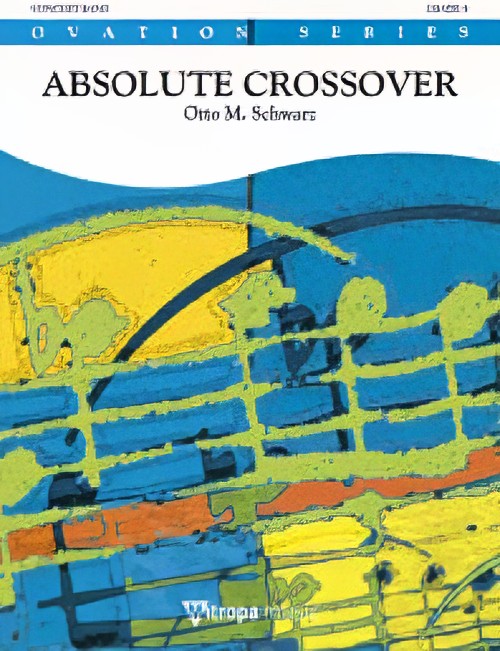 £134.99
£134.99Absolute Crossover (Concert Band - Score and Parts) - Schwarz, Otto M.
This composition is made up of three themes, which feature all the facets of the instrumentation of a concert band as well as that of a big band. The symphonic passages, reminiscent of film music, enable the full tone and colour of the concert band to be heard, whilst the big band sound is represented in the rock segments and slow swing sections. The musical journey travels along practically all styles, ending with an impressive tutti, in which the shuffle rhythm of the big band melts together with the grand, classic film music sound of the concert band.Duration: 7:45
Estimated dispatch 7-14 working days
-
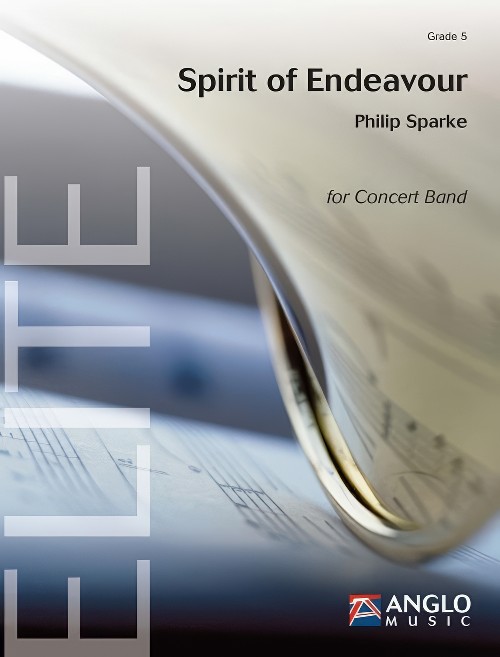 £164.99
£164.99Spirit of Endeavour (Concert Band - Score and Parts) - Sparke, Philip
Spirit of Endeavour is a virtuosic piece of music with a positive musical message. It tells the story of a wind band embracing hard work, friendship, musical excellence, love, marriage and birth, as well as the sad loss of cherished members. Composer Philip Sparke decided to salute the history of the Canadian concert band 'Harmonie de Charlesbourg' with a work that falls into two contrasted sections. One Vision deals with forming the band and the subsequent united desire to create an ensemble espousing the idea of musical perfection. The Pursuit of Excellence salutes the 20 years of hard work of the wind band. This concert work ends with a chorale of the full band, symbolising the fulfilment of a united dream!Duration: 9:15
Estimated dispatch 7-14 working days
-
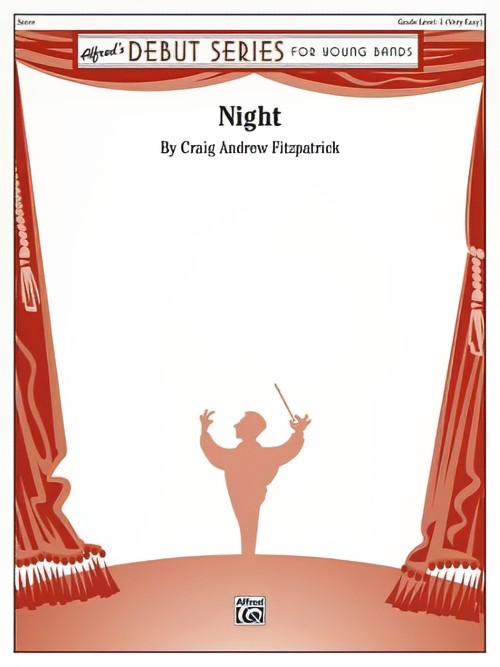 £44.50
£44.50Night (Concert Band - Score and Parts) - Fitzpatrick, Craig
Night is the result of a collaborative project between the composer and the 6th grade beginning band directed by his wife in Morton, Illinois. The students in her band class each write an eight-measure melody as a composition project which is part of the beginning band curriculum. These melodies each start and end on concert B-flat and use only the notes the students have learned on their instruments. The class voted on the best melody, and the winner was "Majestic Night, Oh Winter Night" by Sarah Gunter. The students then observed how this melody was developed by the composer into a concert band piece that they would perform later that year. Compositional terms such as repetition, fragmentation, and augmentation could then be taught to the 6th graders in a piece for young band that was written just for them. Duration: 2.30
Estimated dispatch 7-14 working days
-
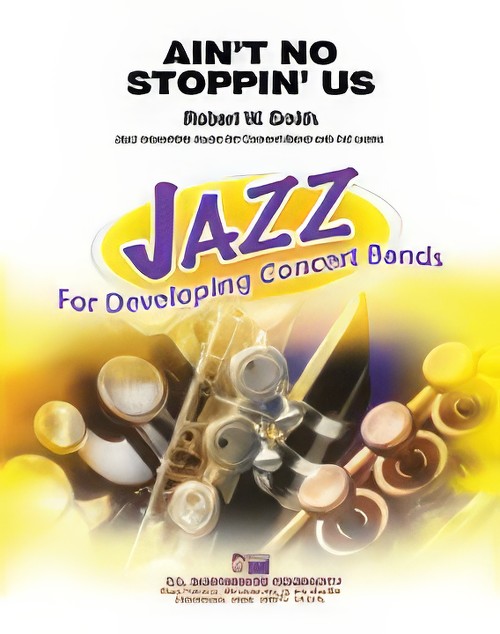 £58.00
£58.00Ain't No Stoppin' Us! (Concert Band - Score and Parts) - Smith, Robert W.
A driving rock chart that will be a favourite of your entire concert band. As part of the new Barnhouse Jazz For Young Concert Band Series, this new tune by Robert W. Smith gives all sections of the band an opportunity to "rock". Accompanied by a rhythm section, Ain't No Stoppin' Us features a scorching melody complete with woodwind fills and soaring counter lines. An open solo section gives all students an opportunity to improvise in a very comfortable setting. This is a perfect choice for the spring concert or any school assembly. Be careful, this may be the one that students want to play year after year!Duration: 2.30
Estimated dispatch 7-14 working days
-
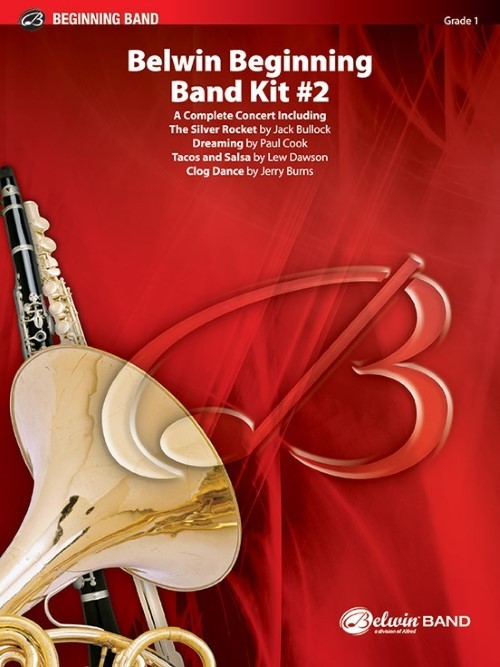 £62.95
£62.95Belwin Beginning Band Kit No.2 (Concert Band - Score and Parts)
This kit for beginning concert band contains four grade one selections on a two page part which can be used as a program for a complete concert or as supplemental material for the first year band. Each of the selections, "The Silver Rocket," "Dreaming," "Tacos and Salsa" and "Clog Dance," is written in a different musical style and this will give variety to the concert and broaden the learning experience of the student. Outstanding music for those on a budget! Duration: 5.00
Estimated dispatch 7-14 working days
-
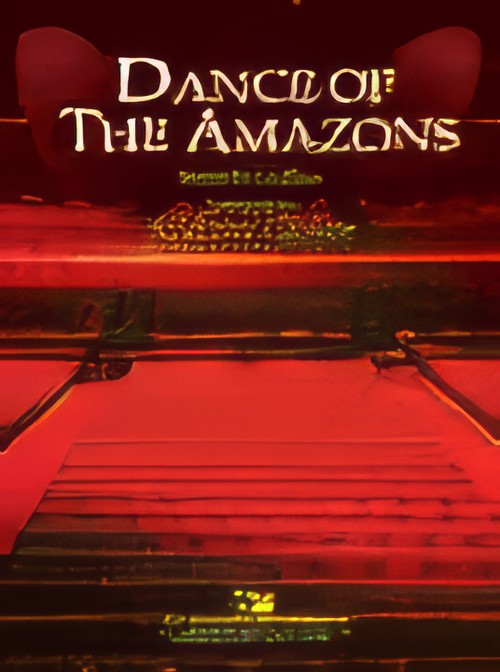 £74.00
£74.00Dance of the Amazons (Concert Band - Score and Parts) - Lyadov, Anatoly - Glover, Andrew
This remarkable work from the Russian composer Liadow is a dazzling tour-de-force for concert band in this new arrangement by Andrew Glover. This fiery dance will challenge your band, but the exciting results are worth the effort. Carefully arranged for contemporary concert band, this stunning orchestral work will dazzle audiences and thrill performers. An excellent choice for concert and contest/festival use.Duration: 3.00
Estimated dispatch 7-14 working days
-
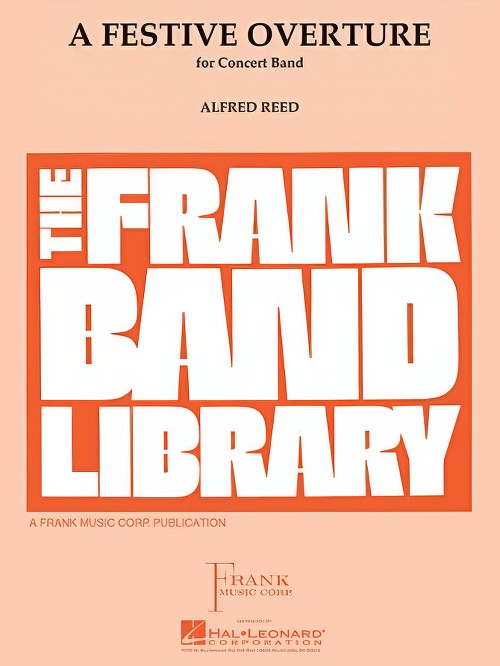 £79.99
£79.99A Festive Overture (Concert Band - Score and Parts) - Reed, Alfred
A Festive Overture was commissioned by the Tri-State Festival, held annually under the auspices of the Music Division of Dickinson State College in Dickinson, North Dakota, for performance at the 1963 Festival. The first performance took place on November 2nd, 1963, at the concluding grand concert of the festival, with the Dickinson State College Symphonic Band under the composer's direction. The score is in traditional overture form, a brilliant opening allegro followed by a reflective, lyrical interlude, and concluding with a return to the first themes and mood. The entire work is built on three motifs, which are heard in the first section, with the middle section developed from one of these, which first appears as the bass line to the main theme. In the course of the work, the full resources of the modern, integrated concert band are called upon, to present these motifs in constantly varied forms and combinations, and in scintillating tone colors. The wording of the commission presented a basic challenge: that of writing a major work on the highest musical level and yet capable of performance by a good high school band. We believe that this challenge has been met, and are proud to offer this work as a contribution to the modern school and concert band repertoire.
Estimated dispatch 7-14 working days
